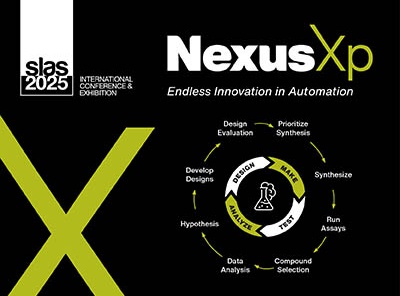
New on the SLAS2025 exhibition floor, the NexusXp interactive pavilion showcases collaborative and integrated lab automation scenarios. This latest evolution of the SLAS Lab of the Future program unites life sciences researchers and vendors to advance technology and increase research options in the lab.
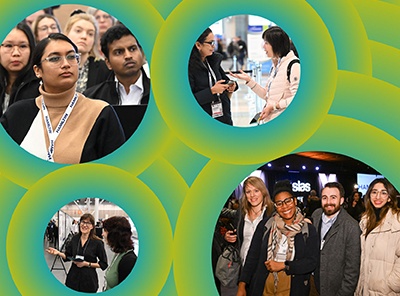
Find it all under one roof – 150 speakers, eight life sciences educational tracks, new features, events and a host of colleagues. The SLAS International Exhibition and Conference, to be held January 25 - 29, 2025 (San Diego, CA, USA), offers all the inspiration curious minds need to launch the new year. Read what others expect and make a wish list of your own!
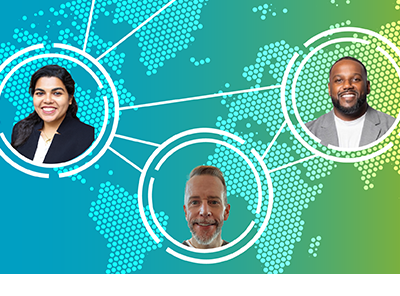
SLAS New Matter Podcast participants and members of an SLAS diversity, equity and inclusion (DEI) panel share thoughts on ally support in the workplace. On the campus, in the lab and around the conference table, panel members encourage life sciences professionals to be willing to challenge situations that don’t support the rights of others, and to know when to ask for guidance surrounding DEI topics.
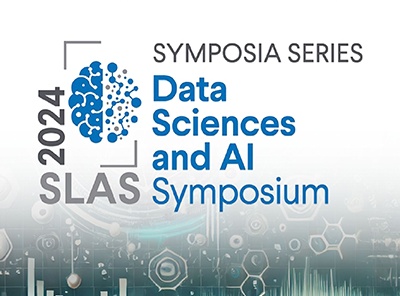
Excited or apprehensive about how data science is shaping future research? Machine learning, generative AI, image analytics, and analyzing omics data types are valuable tools. Taking the wheel to decide how and when to use these worthwhile assets requires careful study and intentional education.
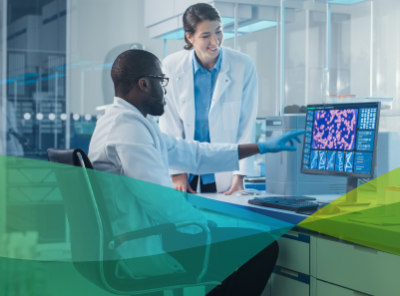
In the on-going quest to improve reproducibility in life sciences research, topic experts agree that employing best practices and efficient tools for data analysis help close the gaps in drug discovery and translational science. The best way forward is to educate researchers on crafting robust assays, capturing their scientific efforts with painstaking accuracy, and sharing the results through peer-reviewed publishing.

Quality control, best practices and storage and distribution excellence are but a few phrases used to describe the painstaking art of sample management. Learn how it all comes together as members share with SLAS Electronic Laboratory Neighborhood...
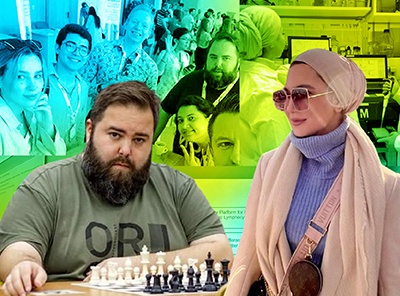
Tackling challenges with gusto, these winning scholars examine each research problem and develop novel approaches to personalize patient treatment, reduce side-effects for current treatment protocols and expand life sciences research.
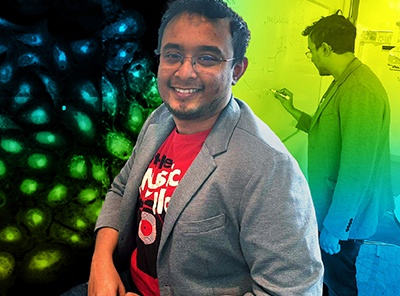
Follow the academic journey of Srijit Seal as he opens doors and expands his research horizon. Since 2022, when he won the SLAS Europe Student Poster Competition, the doctoral student has moved from Cambridge University (UK) to the Broad Institute (Cambridge, MA, USA) to continue his machine learning-based research.

Enter the unfolding landscape of microfluidics, micro-compartmentalization strategies and organ-on-a-chip technologies. Learn about these and other scaled-down approaches to life sciences discovery as members share with SLAS Electronic Laboratory Neighborhood...
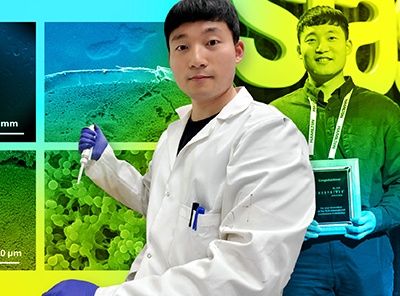
Doctoral candidate Jongwon Lim reveals a new diagnostic technique to promptly identify specific pathogens causing bloodstream infections, such as sepsis or other viral infections associated with hepatitis. Learn how his discovery has potential to reduce sample-processing times and the need for skilled technicians.

SLAS's upcoming Building Biology in 3D Symposium connects the lab to the clinic as it explores the dimensional aspects of cellular models, imaging and analysis pipelines. To gather ideas about what’s on the minds of symposium co-chairs, planning committee members, and keynote and session speakers, SLAS Electronic Laboratory Neighborhood first asked: What’s new?
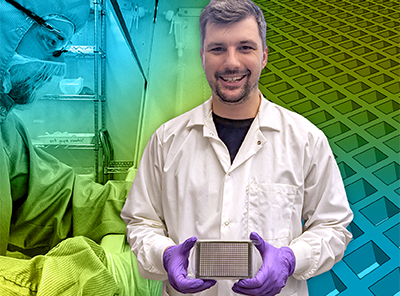
In less than a year after receiving his SLAS Graduate Education Fellowship Grant, Samuel Berryman moved from grant winner to Innovation AveNEW exhibitor. His academic research rapidly expanded into a start-up company with a marketable product — all with the support of SLAS and its network of life sciences leaders.
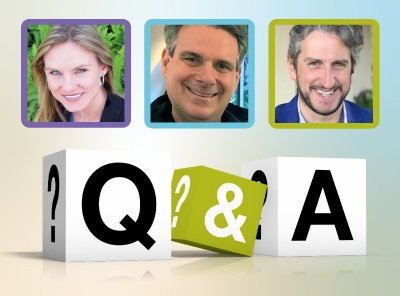
Armed with decades of professional experience, hours of SLAS volunteer participation and a wellspring of innovative ideas, three new members join the SLAS Board of Directors at SLAS2024. Along with the six current Board members, Melissa Crisp, Ph.D., Peter Hodder, Ph.D., and David Jennions, Ph.D., share their vision and plans for the future. Learn more about this exceptional trio and their efforts to bring the enrichment they have experienced to the SLAS community.
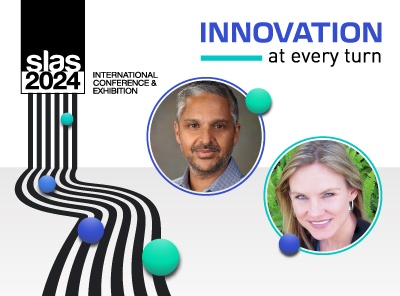
SLAS2024 is the result of months of careful planning orchestrated by Co-chairs Melissa Crisp, Ph.D., and Kamlesh (Ken) Patel, Ph.D. The event offers a sweeping spectrum of scientific posters and presentations, cutting-edge technology and products and multiple points for colleagues to connect. Crisp and Patel pause for a moment to share what’s been happening behind the scenes as the weeks unfold toward the big opening Feb. 3-7 in Boston.